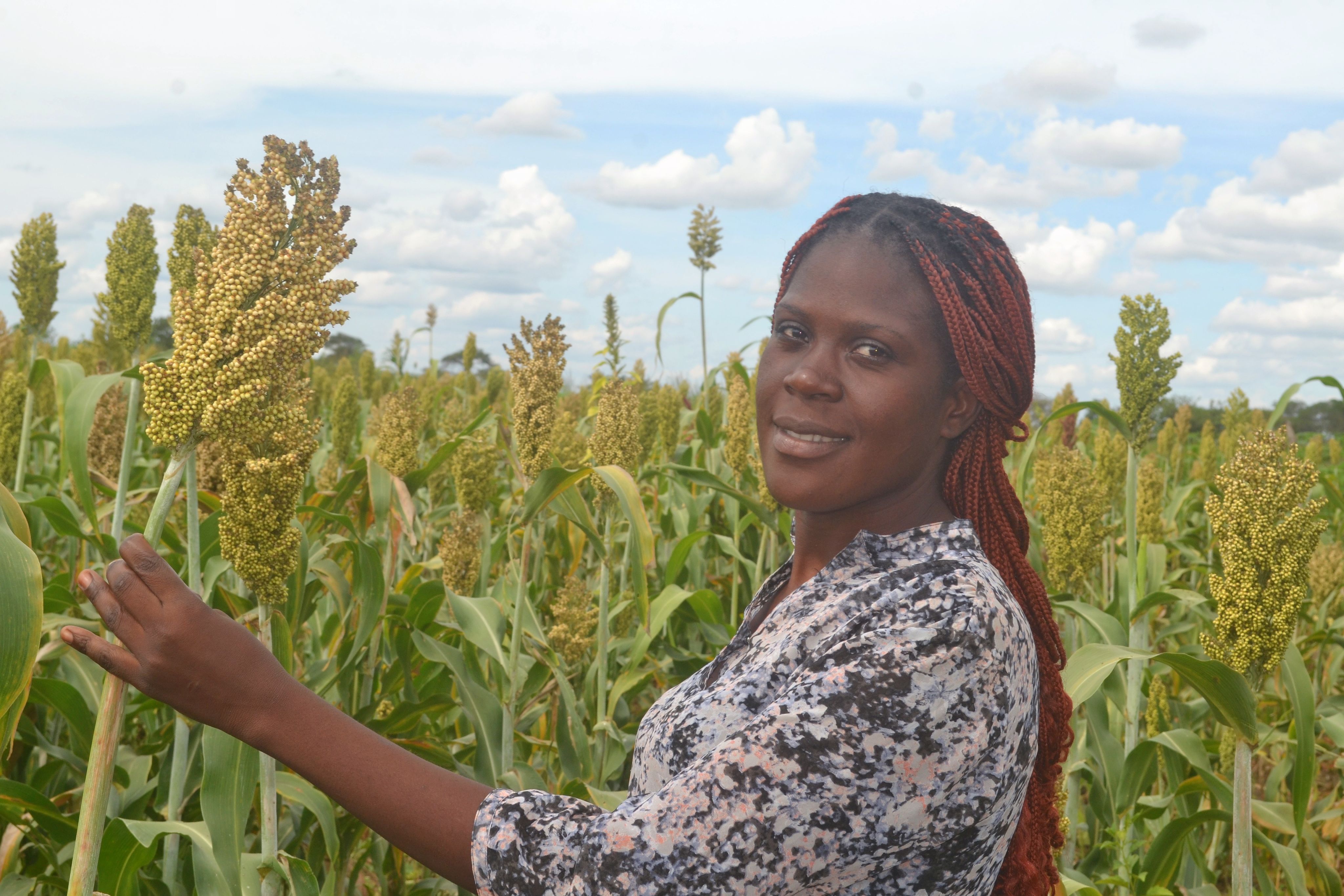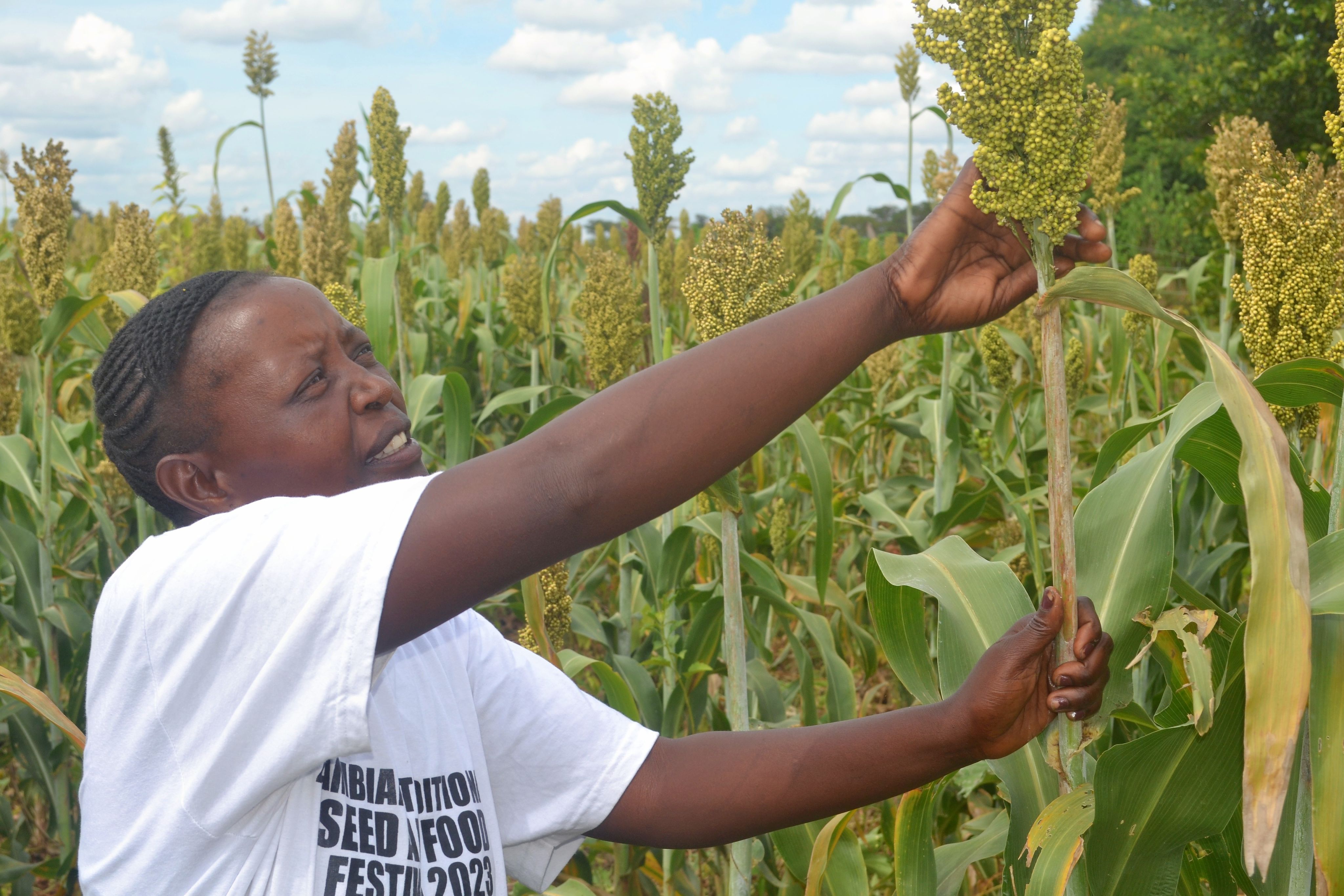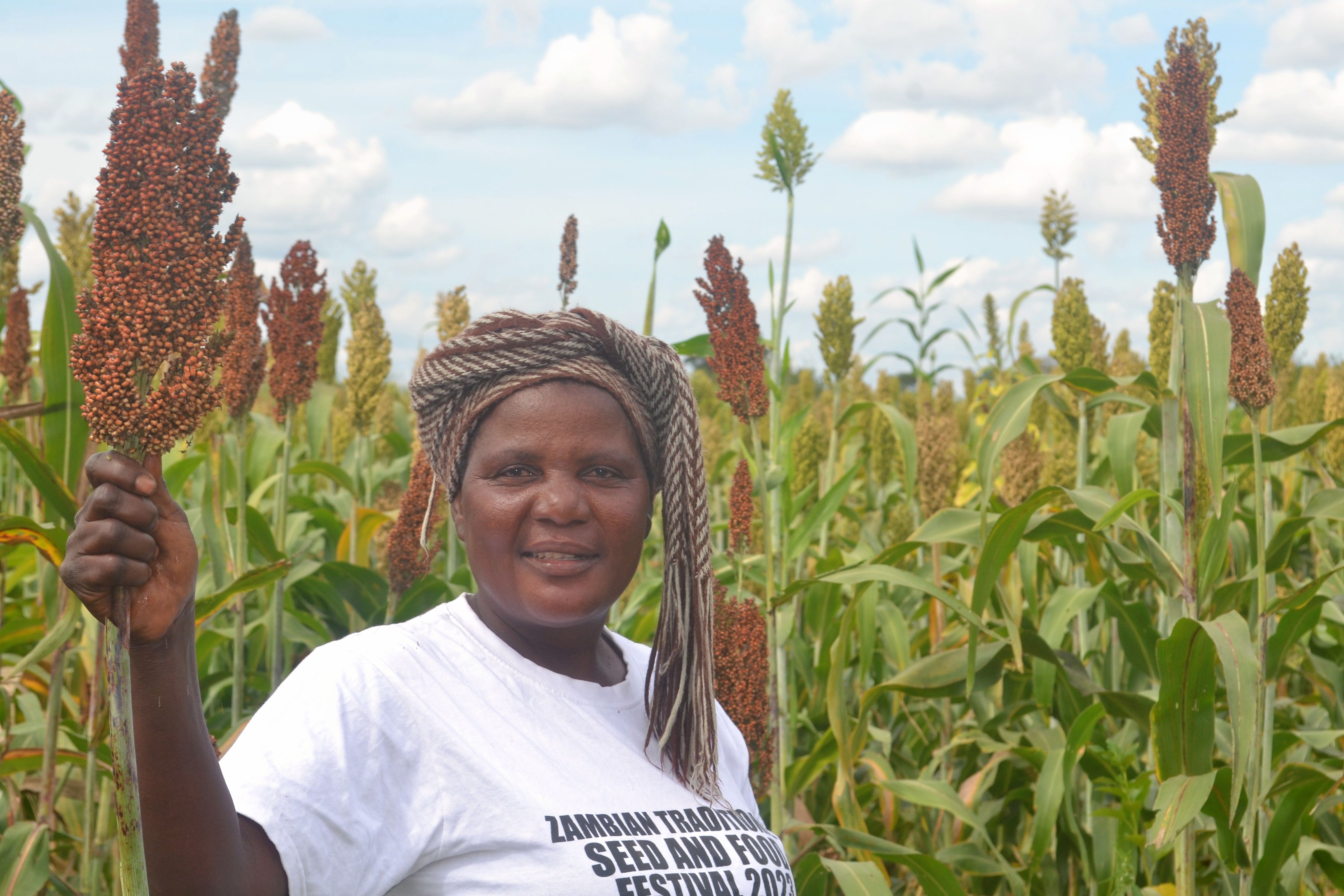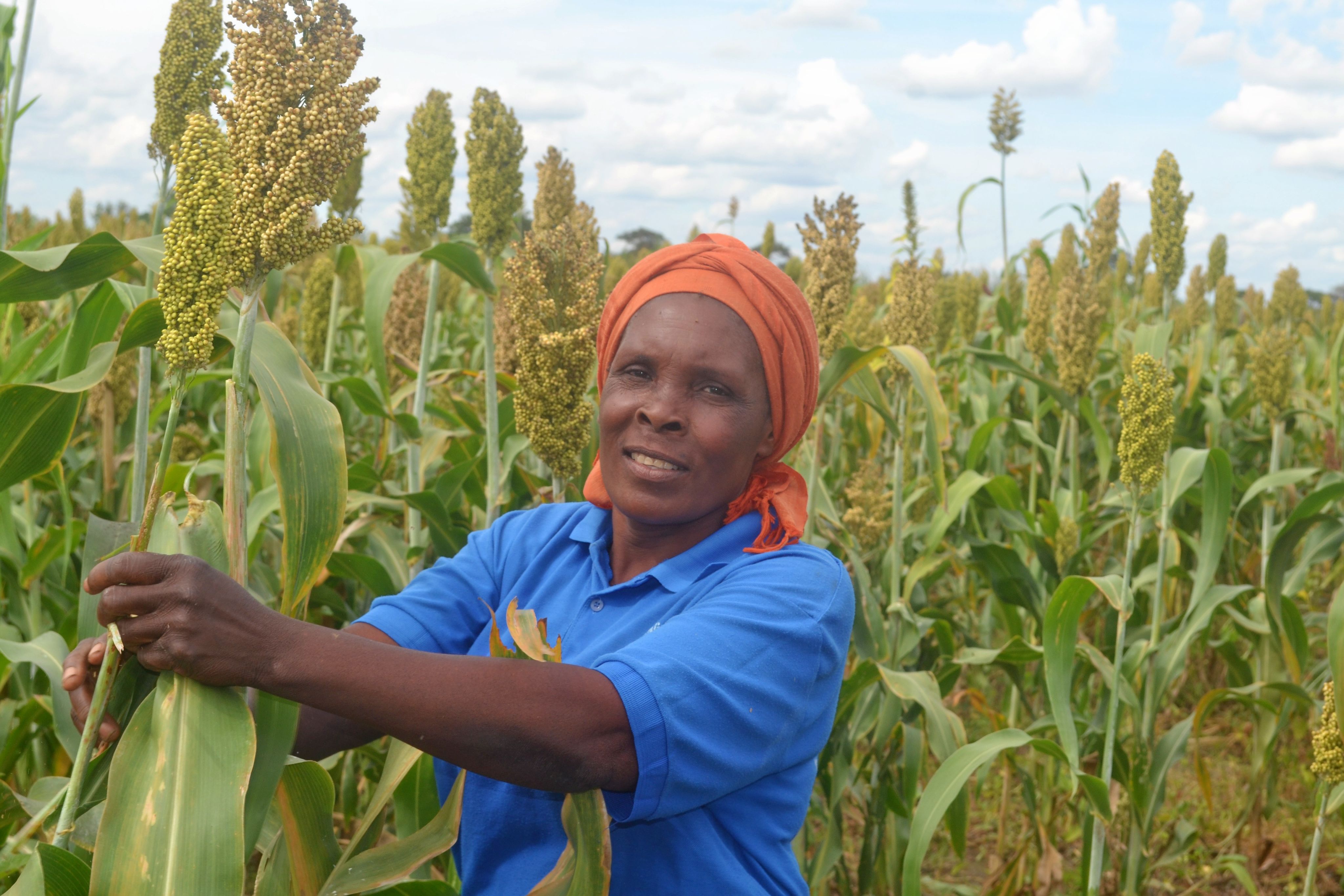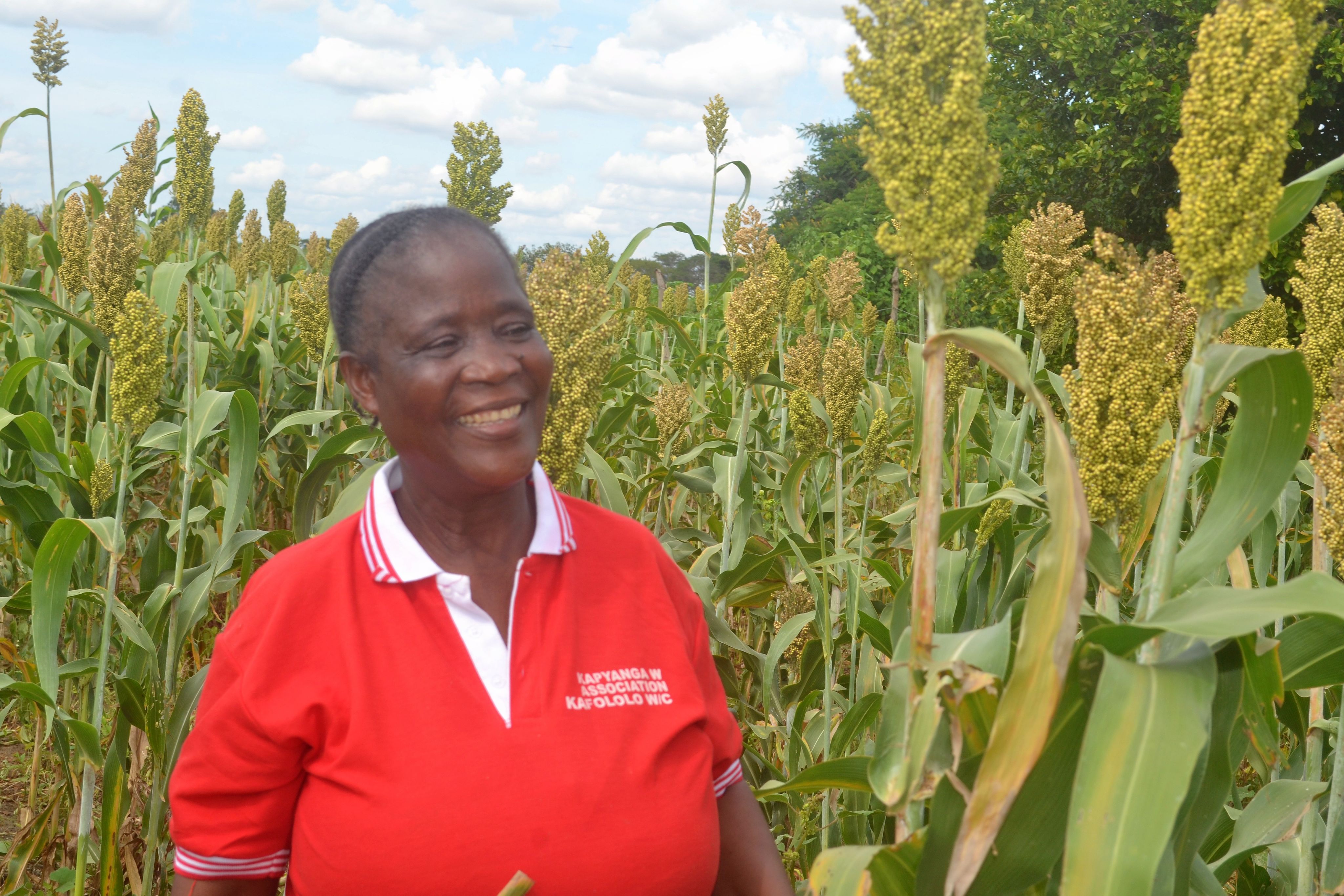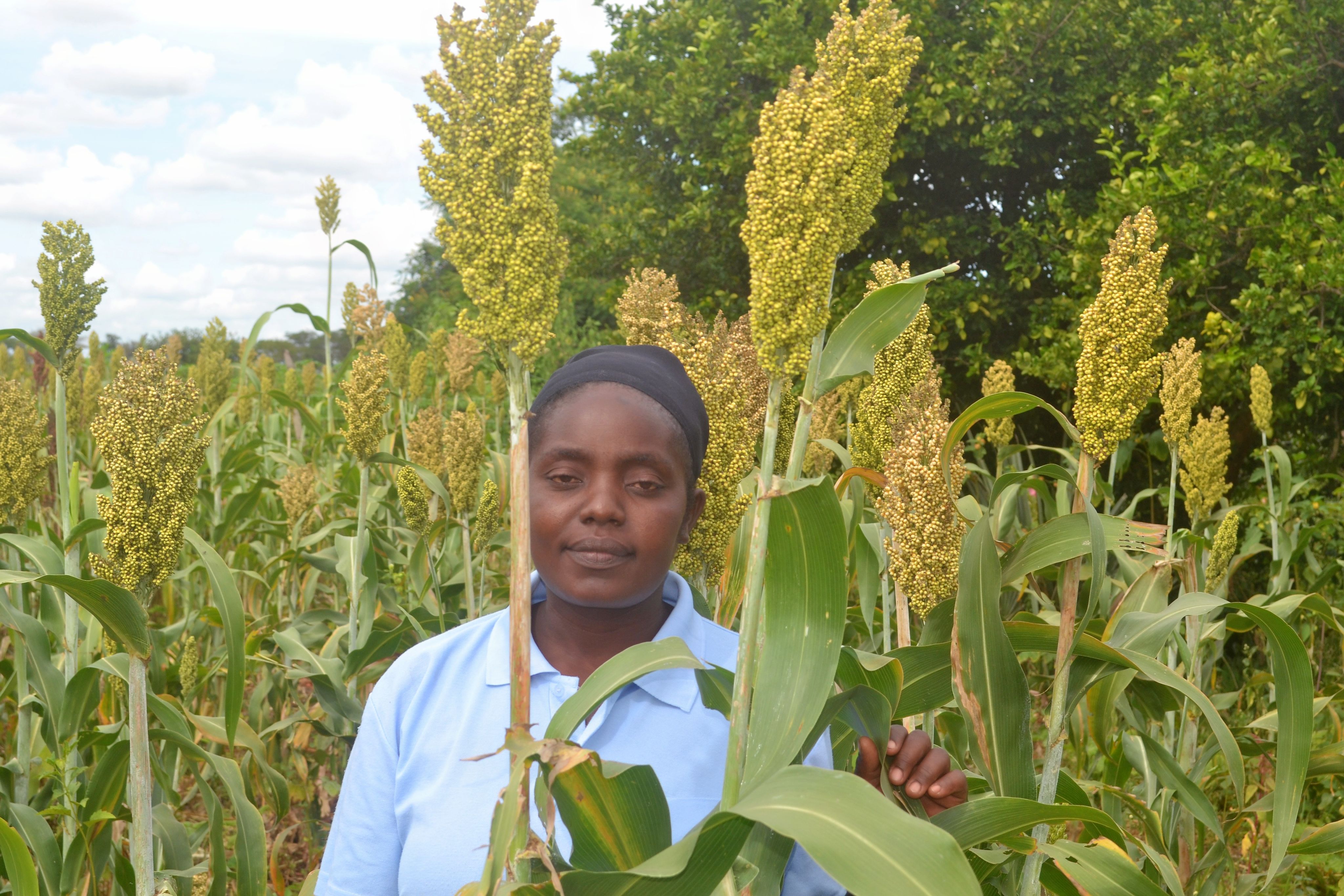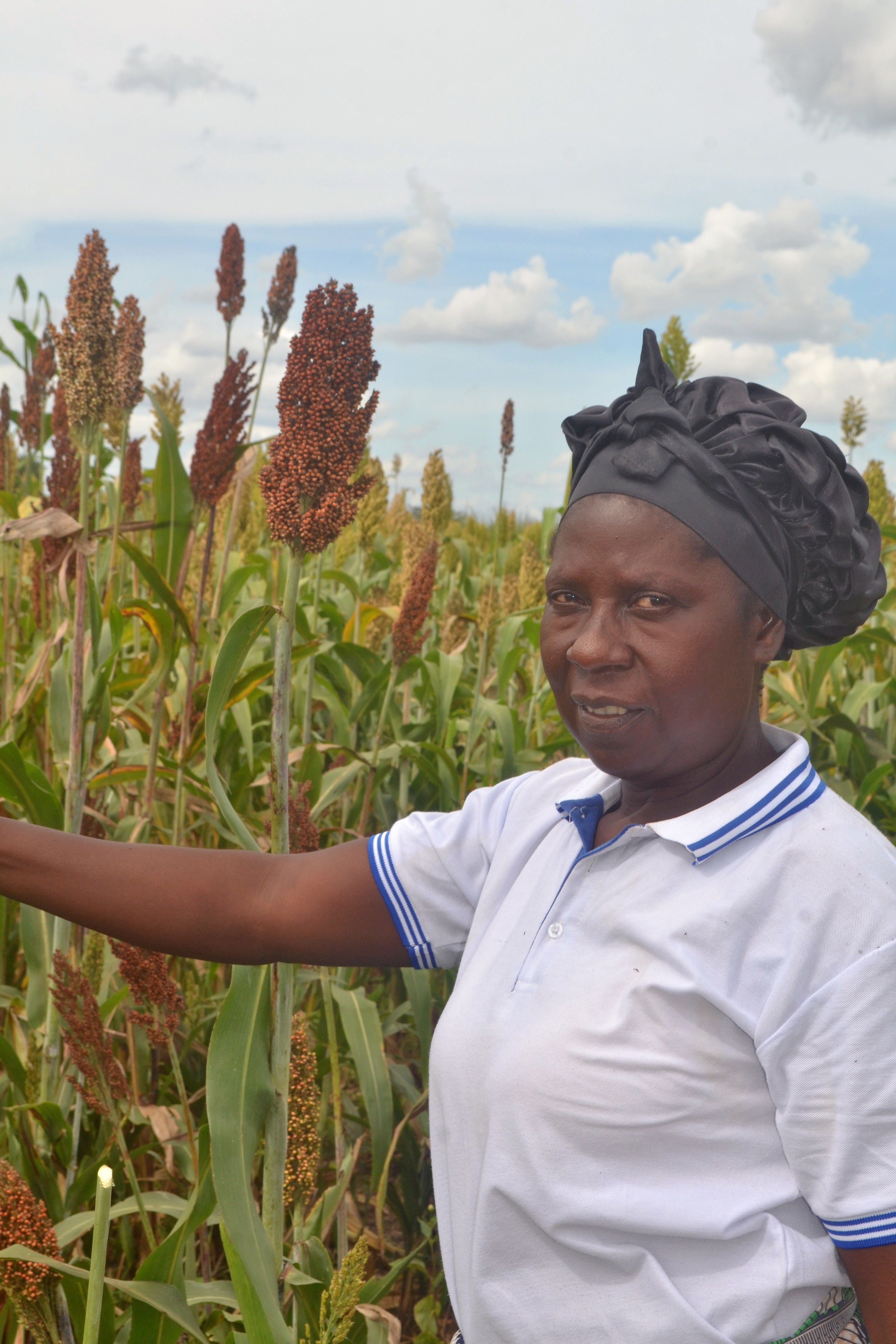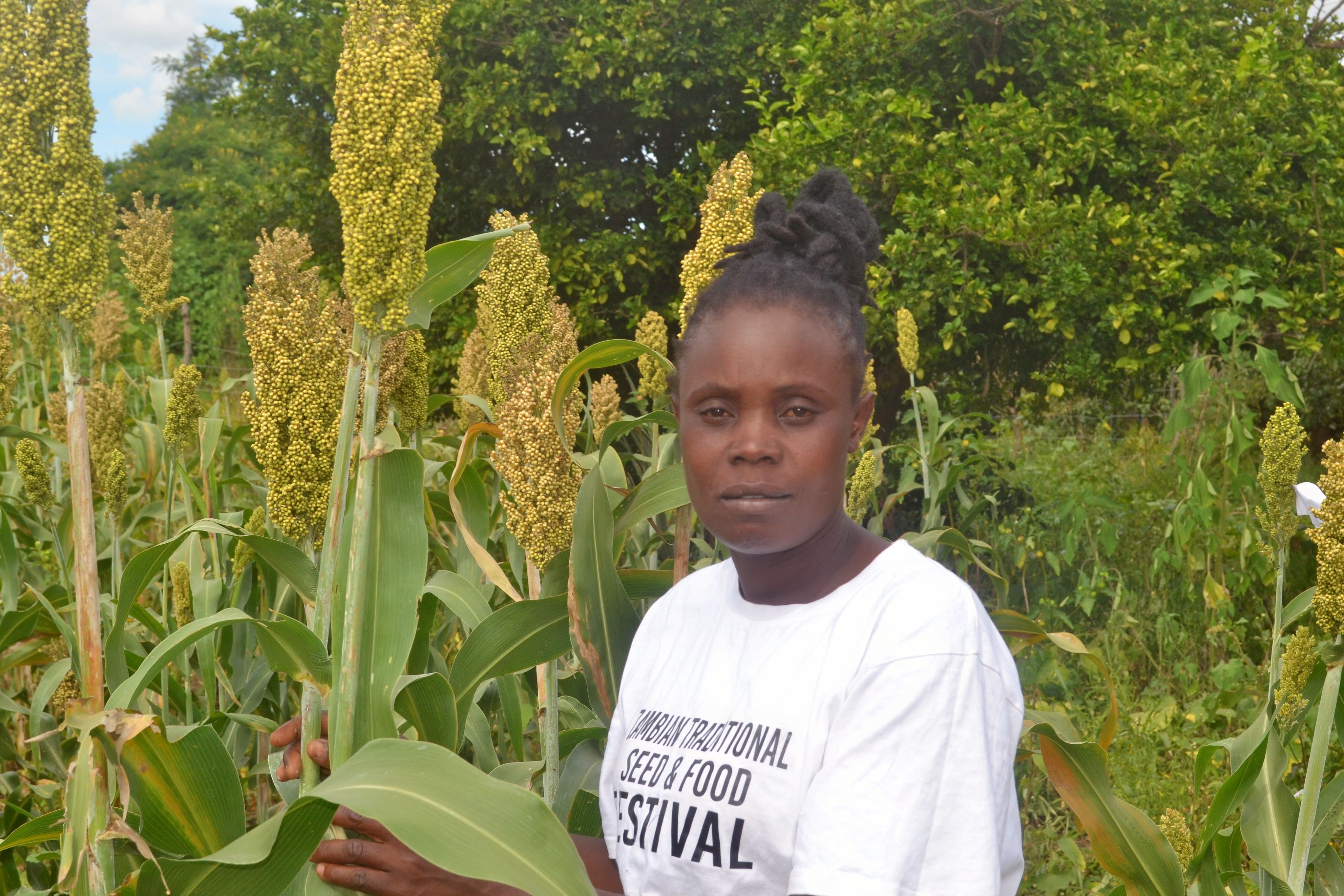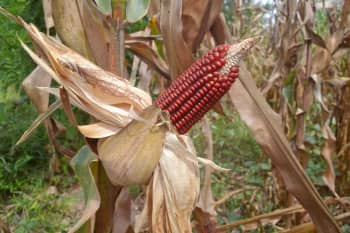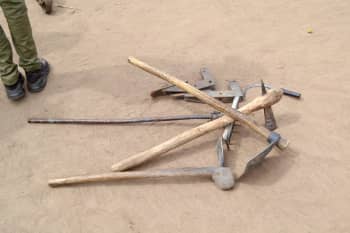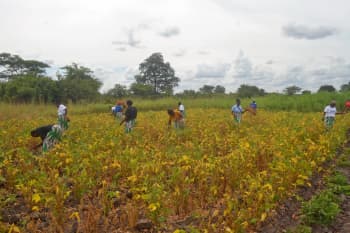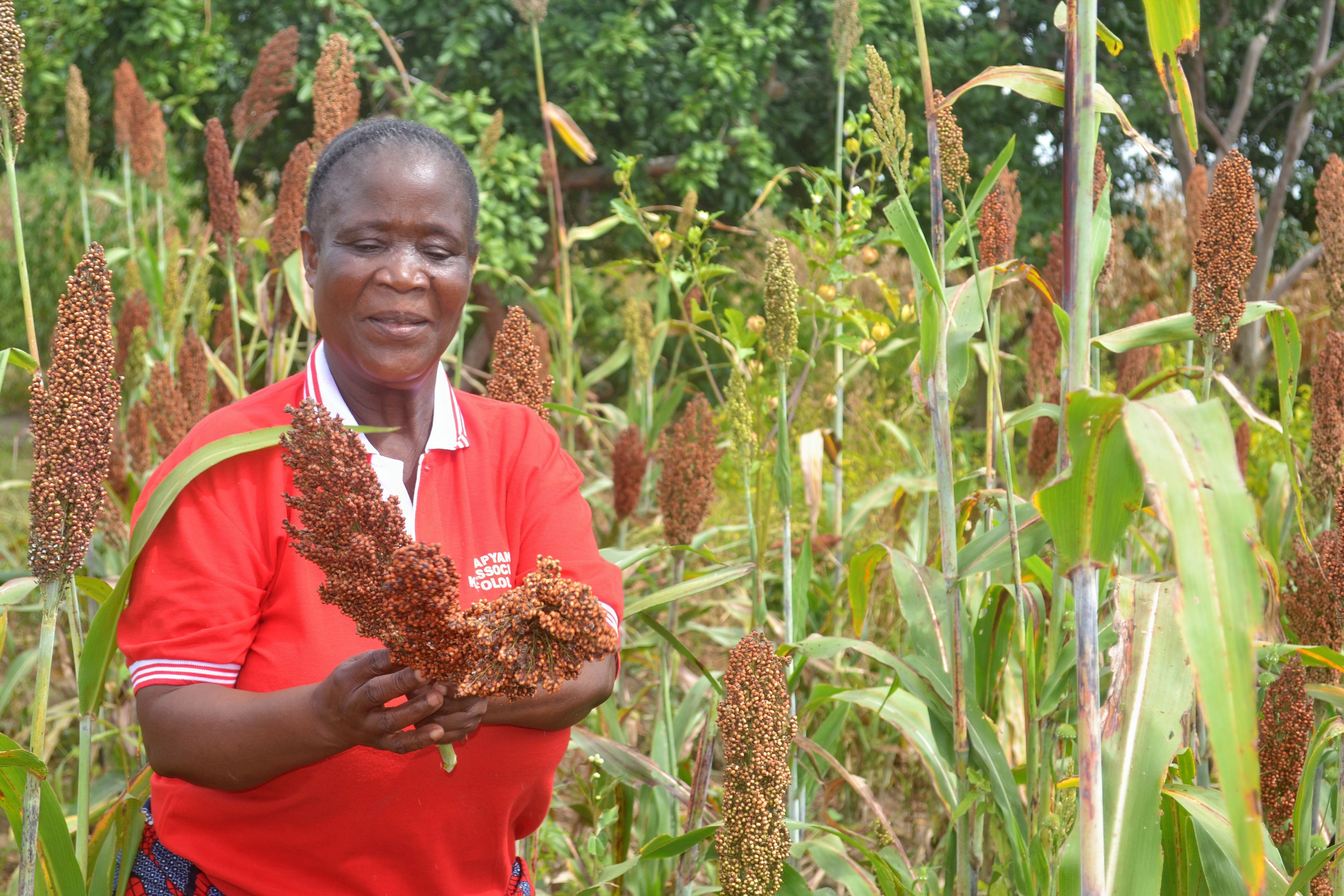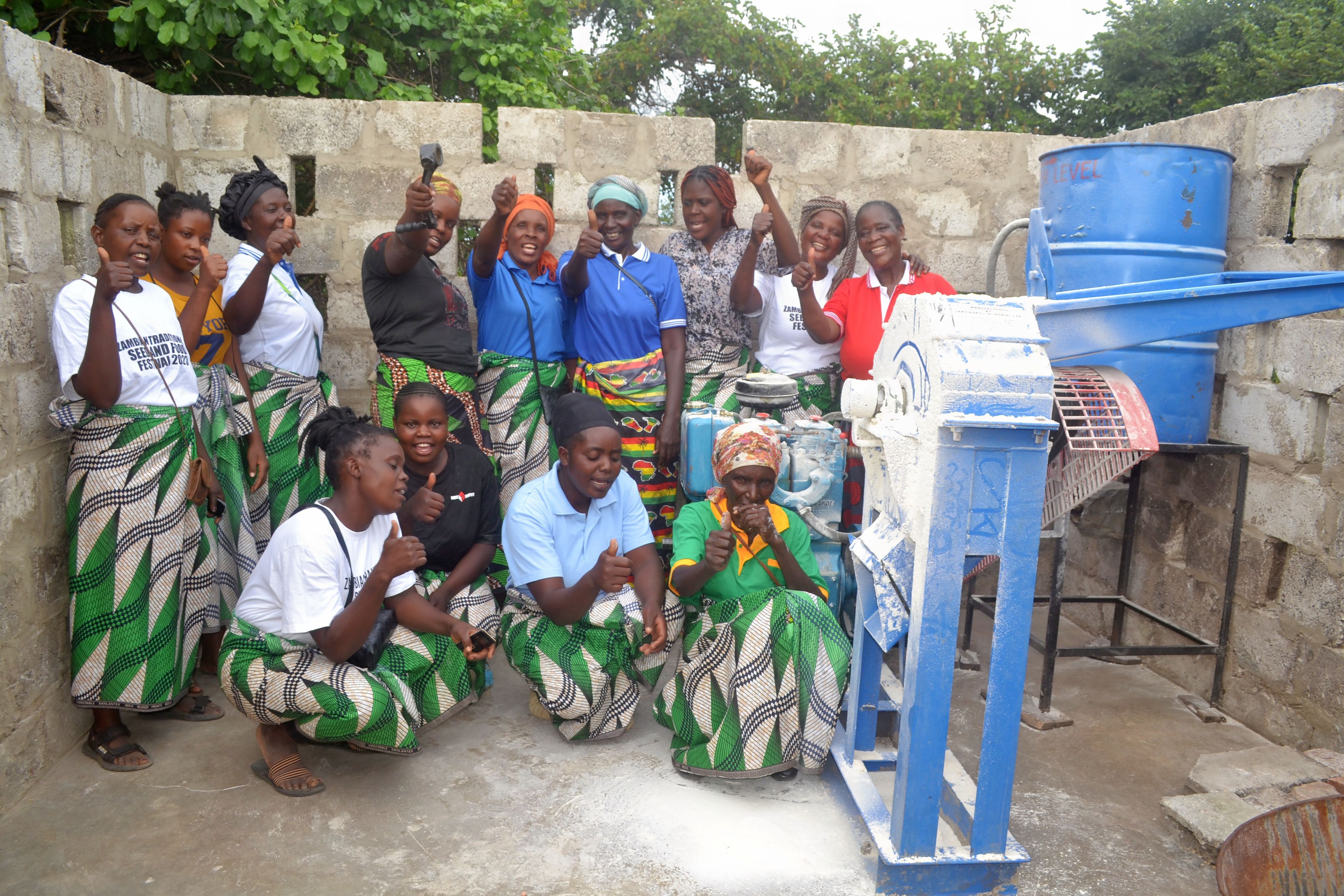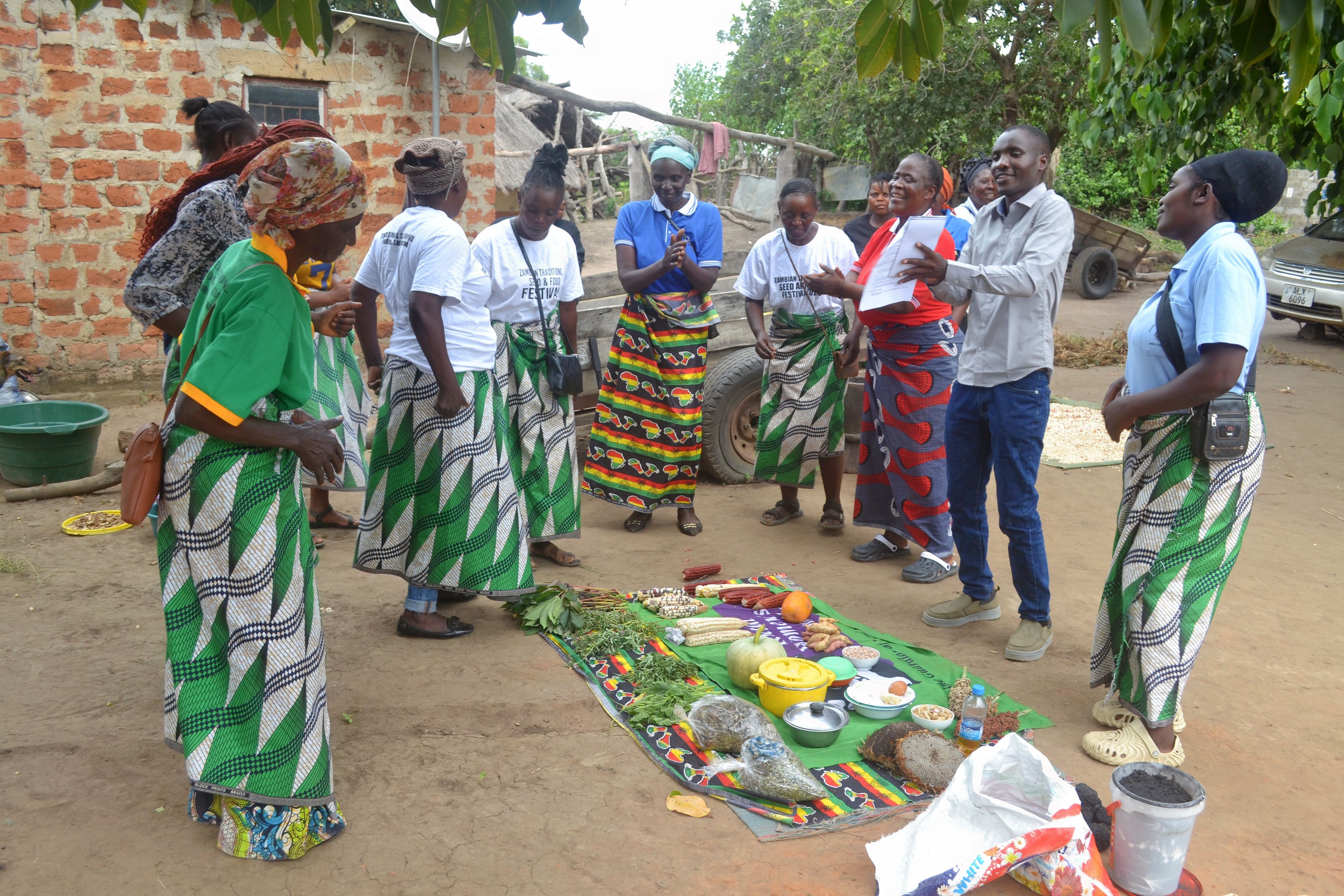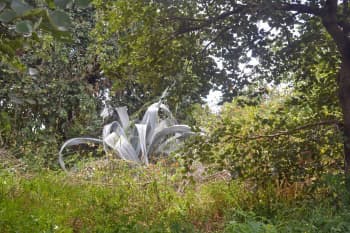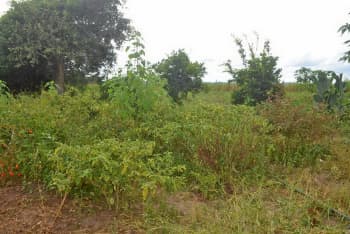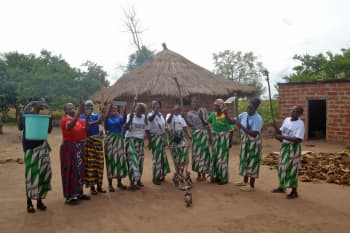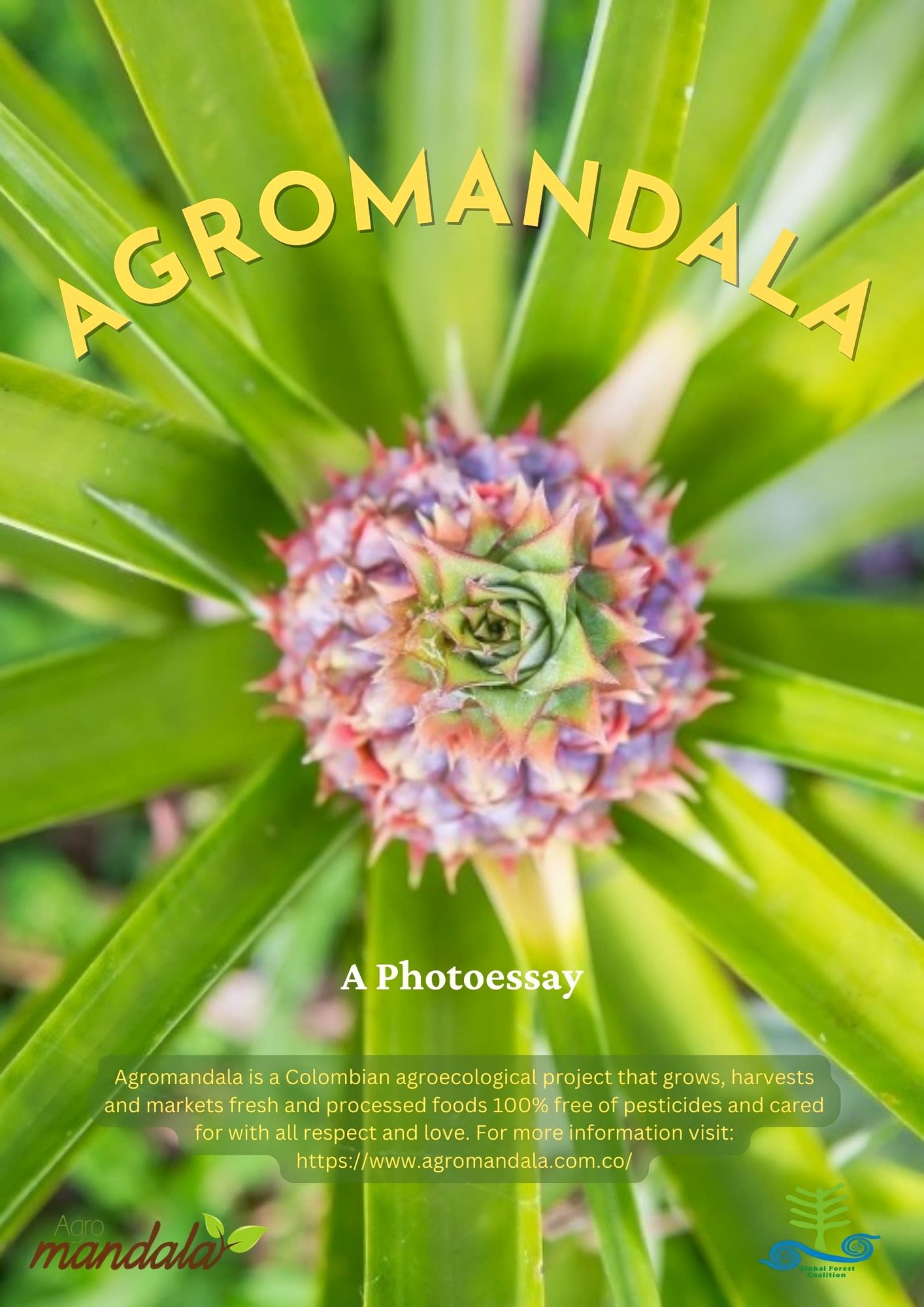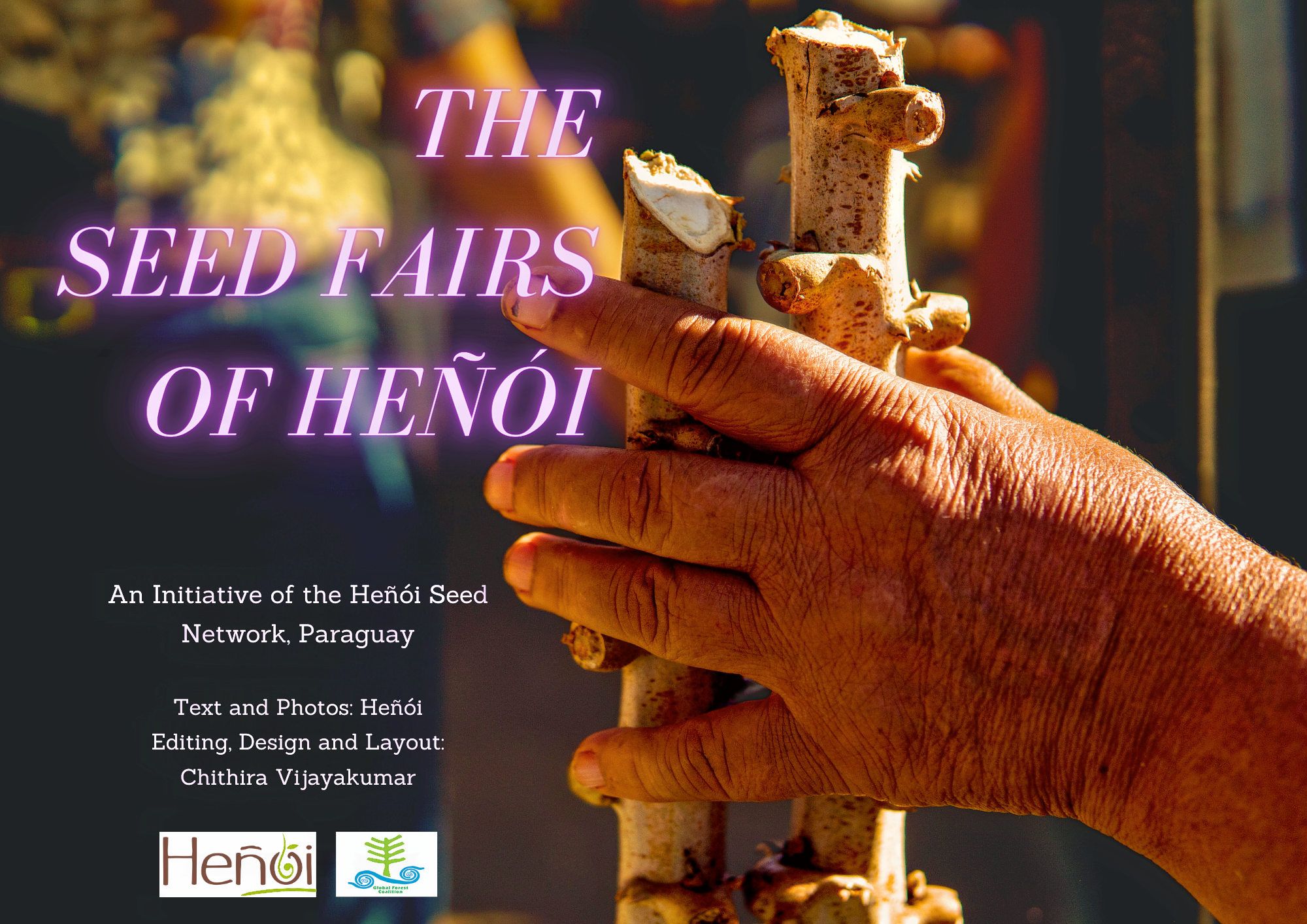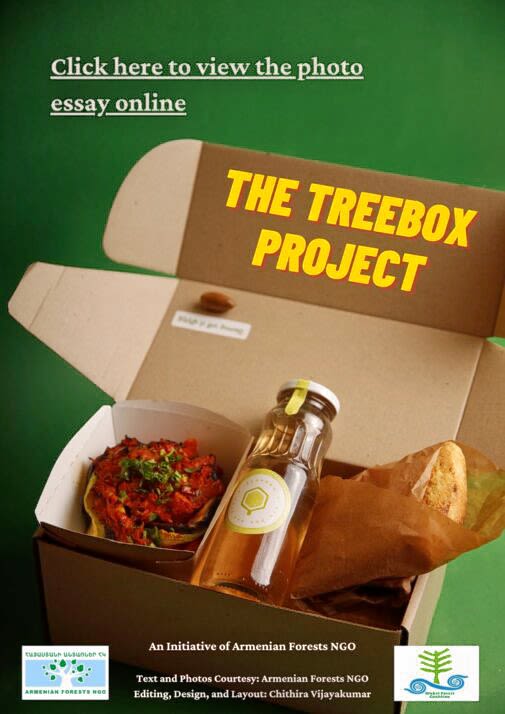Ubuntu in Action
Zambian Women Leading Agroecology and Cultural Revival
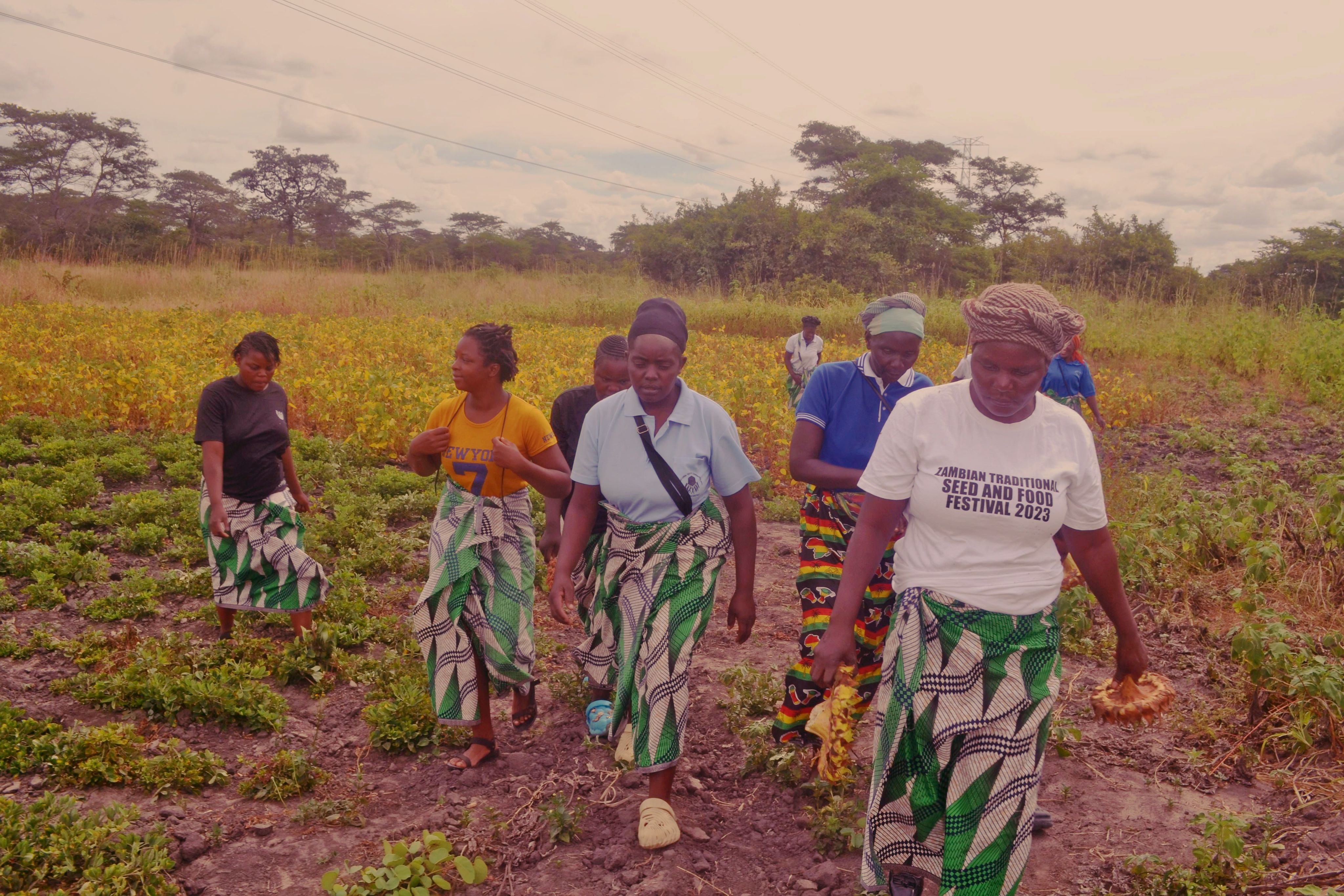
In Chipako Village in Central Zambia, Margaret Hebenzu kneels in her field, her hands carefully guiding Indigenous seeds into the soil. At first glance, this moment may seem ordinary, although it is anything but. Each seed she plants carries the legacy of generations past—an act of resilience, hope, and unwavering commitment to the land and the future here in Shibuyunji District. Margaret is more than a farmer, she is a leader, a knowledge keeper, and a climate defender. She is one of the founding members of the Kapyanga Women Association, a grassroots organisation that has been transforming lives and landscapes in Zambia for over two decades.
Margaret’s story is part of a larger tapestry woven by the women of Kapyanga, who have united to protect their forests, reclaim their agricultural heritage, and create a sustainable future for their communities.
Through agroecology, food sovereignty, and traditional farming practices, these women are cultivating and advancing real solutions to some of the world’s most pressing challenges—climate change, biodiversity loss, and food insecurity.
Rooted in Tradition, Growing for the Future
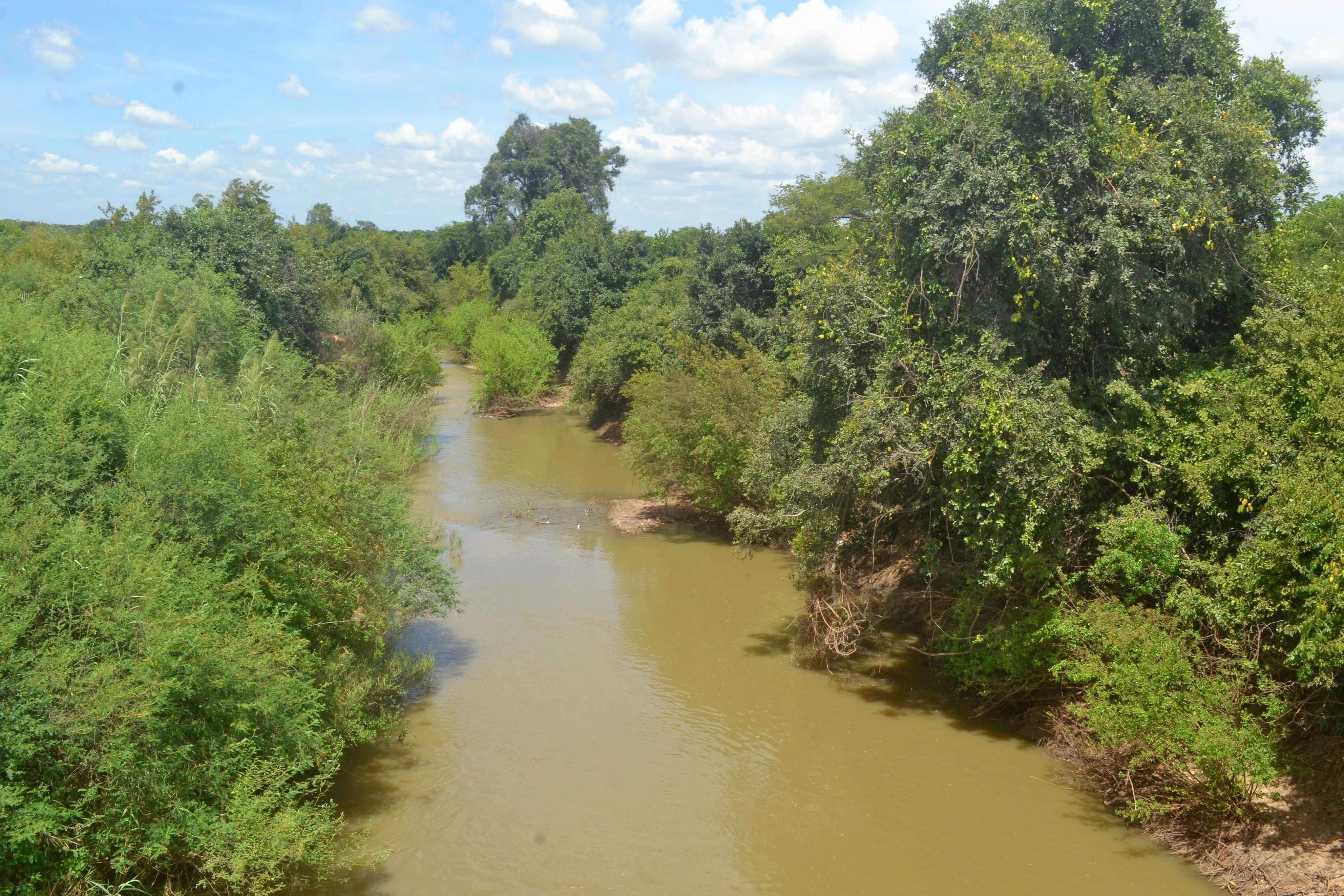
The Kapyanga Women Association was founded in Zambia in 2003 by a group of visionary women determined to address the environmental and social challenges facing their communities. It is the Zambian chapter of the Rural Women’s Assembly, and includes 20 local clubs. United by a shared sense of purpose, these women mobilised ten villages to combat deforestation, food insecurity, and the loss of indigenous knowledge.
We feel a deep sense of peace when we are surrounded by nature. It connects us to our roots and reminds us of our responsibility to protect Indigenous seeds, plants, and ecosystems.
For us, this is not a political issue, it is a matter of survival. That is why we are working together with others who care, to fight back against the effects of climate change.
At the heart of the women’s efforts is the Kawena Forest Reserve in the Kapyanga Farm Block, Shibuyunji District, in Central Province, Zambia, a once-degraded woodland that the women have been restoring through tree planting, community bylaws, and traditional forest-guarding practices. They have planted over 2,000 native trees since 2022, including musekese, mulama, and moongo, along with citrus trees, which were chosen for their nutritional value. However, due to three consecutive years of drought caused by climate change, many of the trees have not survived. For the women of Kapyanga, the Kawena Forest is a sacred space, a living archive of their community's history, spirituality, and cultural identity.
Their leadership draws from a deep well of ancestral wisdom, blending traditional practices with modern agroecological principles. By cultivating drought-tolerant crops like sorghum, millet, and groundnuts, the women are creating resilient farming systems that nourish their families while also protecting biodiversity and combating climate change. These crops, grown without synthetic fertilisers or pesticides, using methods passed down through oral tradition, embody a return to ecological harmony and cultural pride. They are maintained alongside cultural practices that honour the land as a living entity.
At Kapyanga Women Association, our work matters because we blend our traditional knowledge with natural and modern methods to care for the land around us.
We protect trees, bushes, and water sources, and we grow local foods that are both healthy and healing. It’s our way of keeping nature alive and making sure we live in harmony with it.
Margaret Hebenzu, Chair of the Kapyanga Women Association
Margaret Hebenzu, Chair of the Kapyanga Women Association
Charity Kayombo, Committee Member, Kapyanga Women Association
Charity Kayombo, Committee Member, Kapyanga Women Association
Alice Shibulo, Vice-Secretary, Kapyanga Women Association
Alice Shibulo, Vice-Secretary, Kapyanga Women Association
Euniverse Mafuta, Kapyanga Women Association
Euniverse Mafuta, Kapyanga Women Association
Judith Chivumbwe, Committee Member, Kapyanga Women Association
Judith Chivumbwe, Committee Member, Kapyanga Women Association
Annie Mutale, Treasurer, Kapyanga Women Association
Annie Mutale, Treasurer, Kapyanga Women Association
Yvonne Mbozi, Head of Media, Kapyanga Women Association
Yvonne Mbozi, Head of Media, Kapyanga Women Association
Agness Mweemba, Vice-Chair, Kapyanga Women Association
Agness Mweemba, Vice-Chair, Kapyanga Women Association
Everlyn Libinga, Committee Member, Kapyanga Women Association
Everlyn Libinga, Committee Member, Kapyanga Women Association
Gift Kapambwe, Kapyanga Women Association
Gift Kapambwe
Cultivating Change Through Agroecology
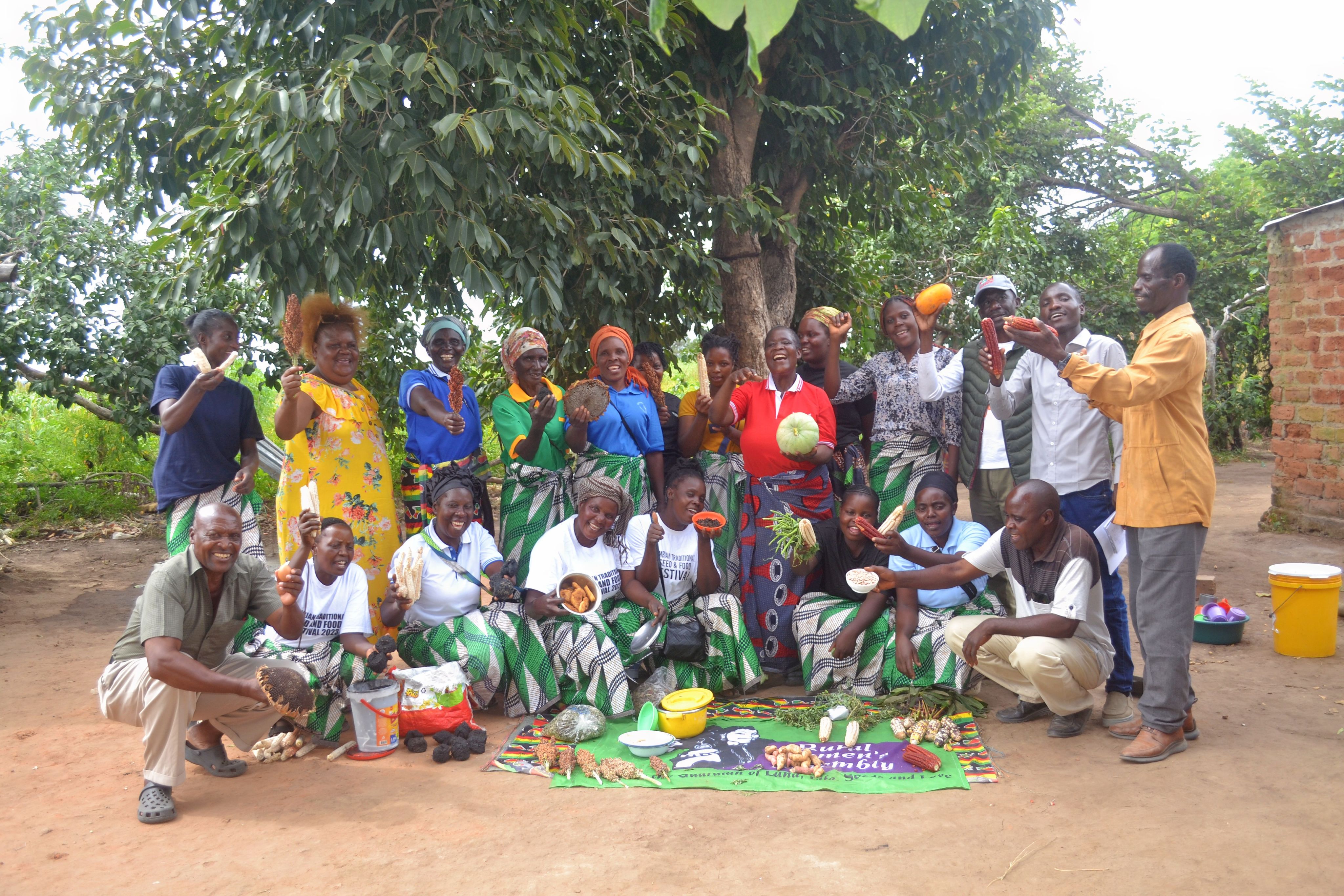
The women of Kapyanga are more than farmers—they are educators, innovators, and advocates. Through practical training sessions, they teach agroecology techniques such as composting, mulching, and seed saving. These sessions emphasise the importance of Indigenous seeds, which are adapted to local conditions and also carry cultural and nutritional significance.
The association has established a community-managed seed bank, preserving local seed varieties and ensuring food sovereignty for 50 households. The seeds include ten varieties of maize, eight varieties of groundnuts, four varieties of cowpeas, and beans. There are currently 13 seed savers in the area, growing and preserving 35 indigenous food crop varieties. These are stored at the homesteads, contributing to food sovereignty for over 60 households in the Chipako area of the Kapyanga community.
These figures may seem modest at first glance, but they highlight a broader challenge faced by many Global South countries: the lack of timely, effective, and gender-responsive financial support necessary to develop agroecological practices. Such practices are essential for creating productive, economically viable, sustainable, and culturally appropriate agroecosystems.
By recognising the intrinsic relationship between forest-dependent communities and ecological processes, agroecology has the potential to enhance sustainable food production, boost productive capacity, improve ecosystem health, and increase biological efficiency. Women food producers, through their acts of resistance and holistic approaches embedded in their daily practices, must be acknowledged as the primary pillars of food sovereignty. This is particularly significant given that small-scale producers, relying predominantly on their own agricultural resources, generate up to 80 percent of Africa’s food.
Seed saving is a technical process and a sacred act. In traditional Zambian culture, women are seen as the "keepers of the seed," responsible for protecting biodiversity and ensuring the continuity of life. In the past, when a girl was married, she would be given a variety of native seed crops to plant at her new home. This was a way of ensuring household food security. By reviving these practices, the women are reclaiming their role as custodians of the land and transmitters of ecological knowledge.
Their advocacy extends beyond the fields. Through community awareness campaigns, the women share knowledge with farmers, youth, and traditional leaders about the dangers of synthetic inputs and the benefits of agroecology. Using storytelling, proverbs, and lived experiences, they inspire others to embrace sustainable farming practices that restore soil health, protect water, and ensure long-term food sovereignty.
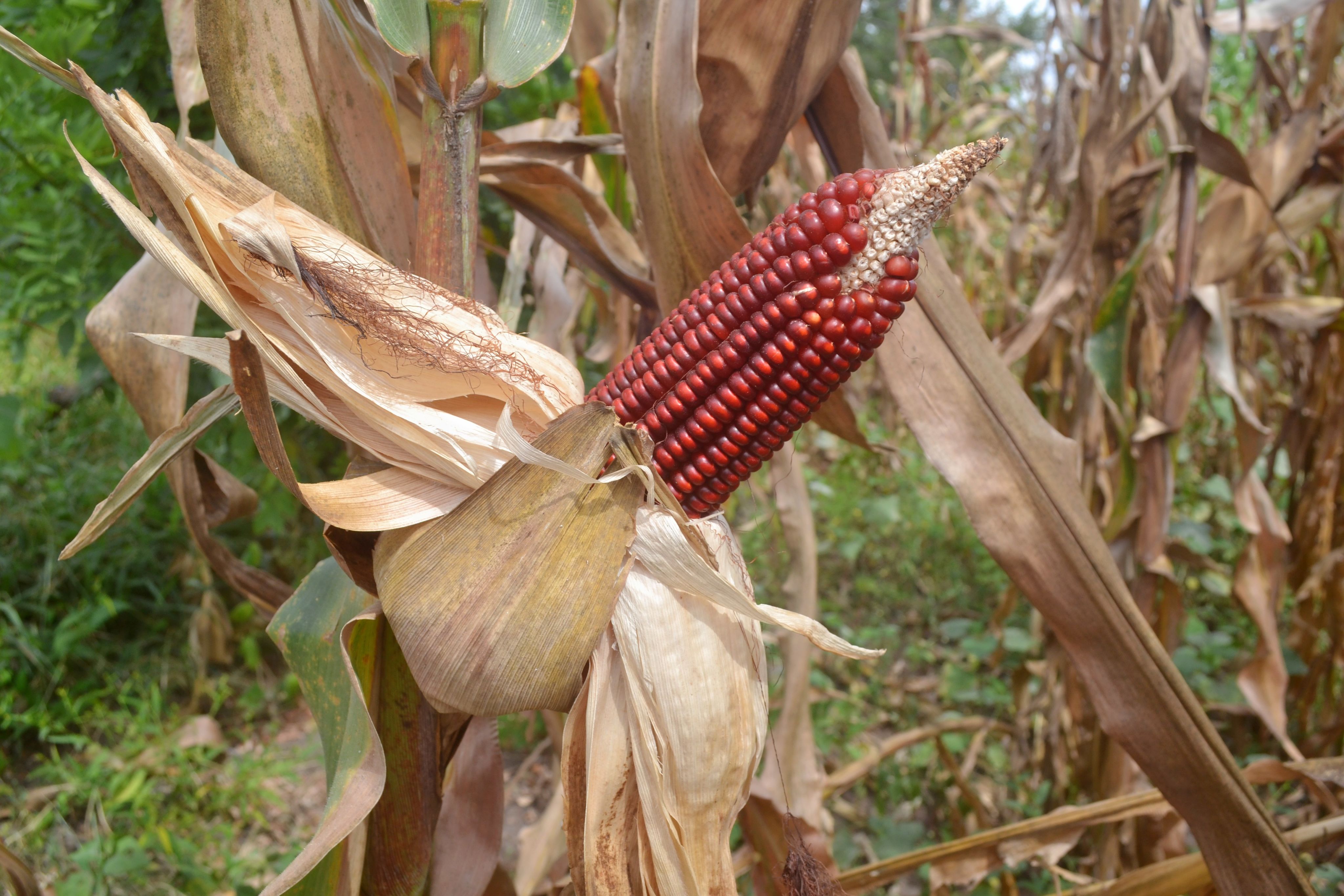
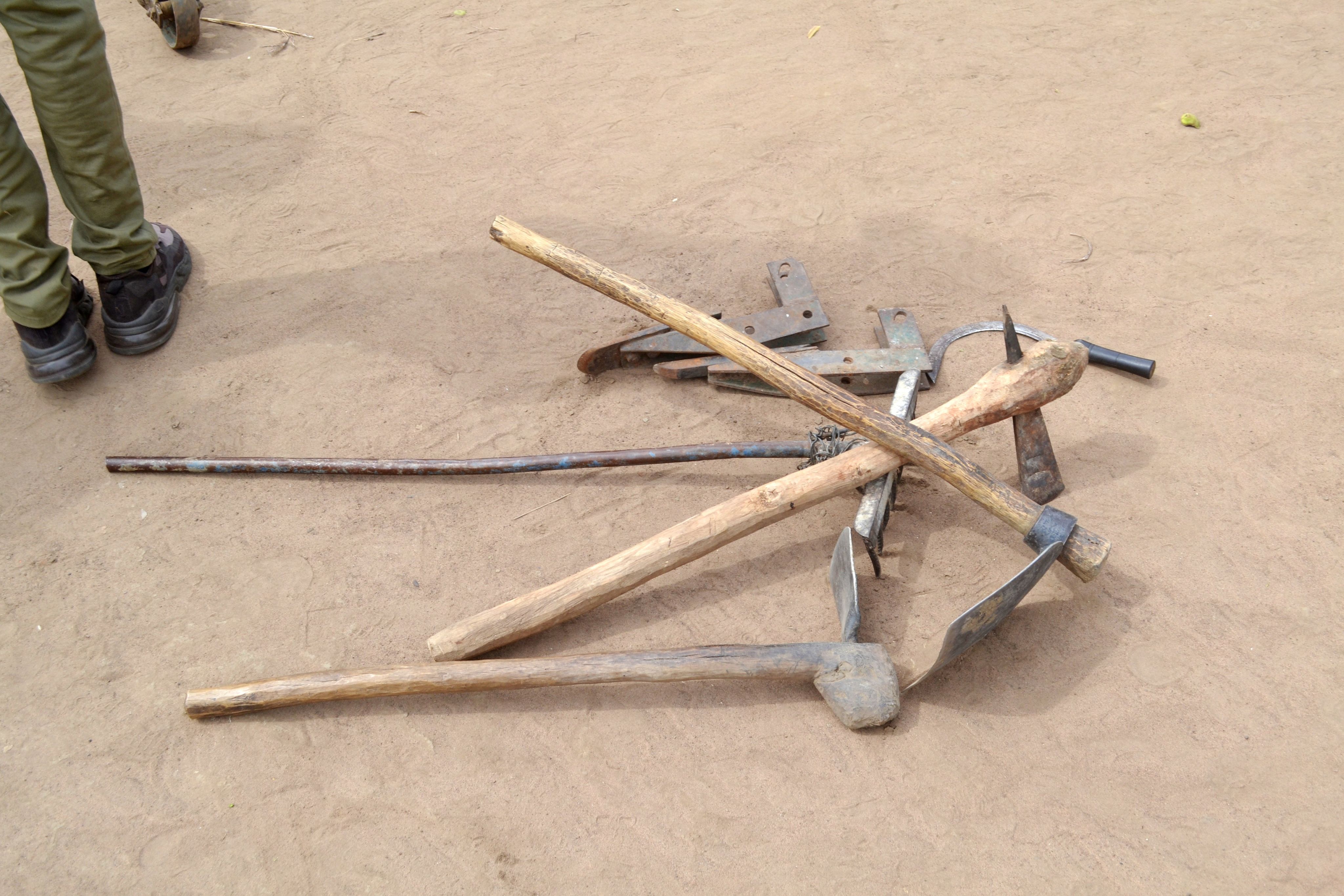
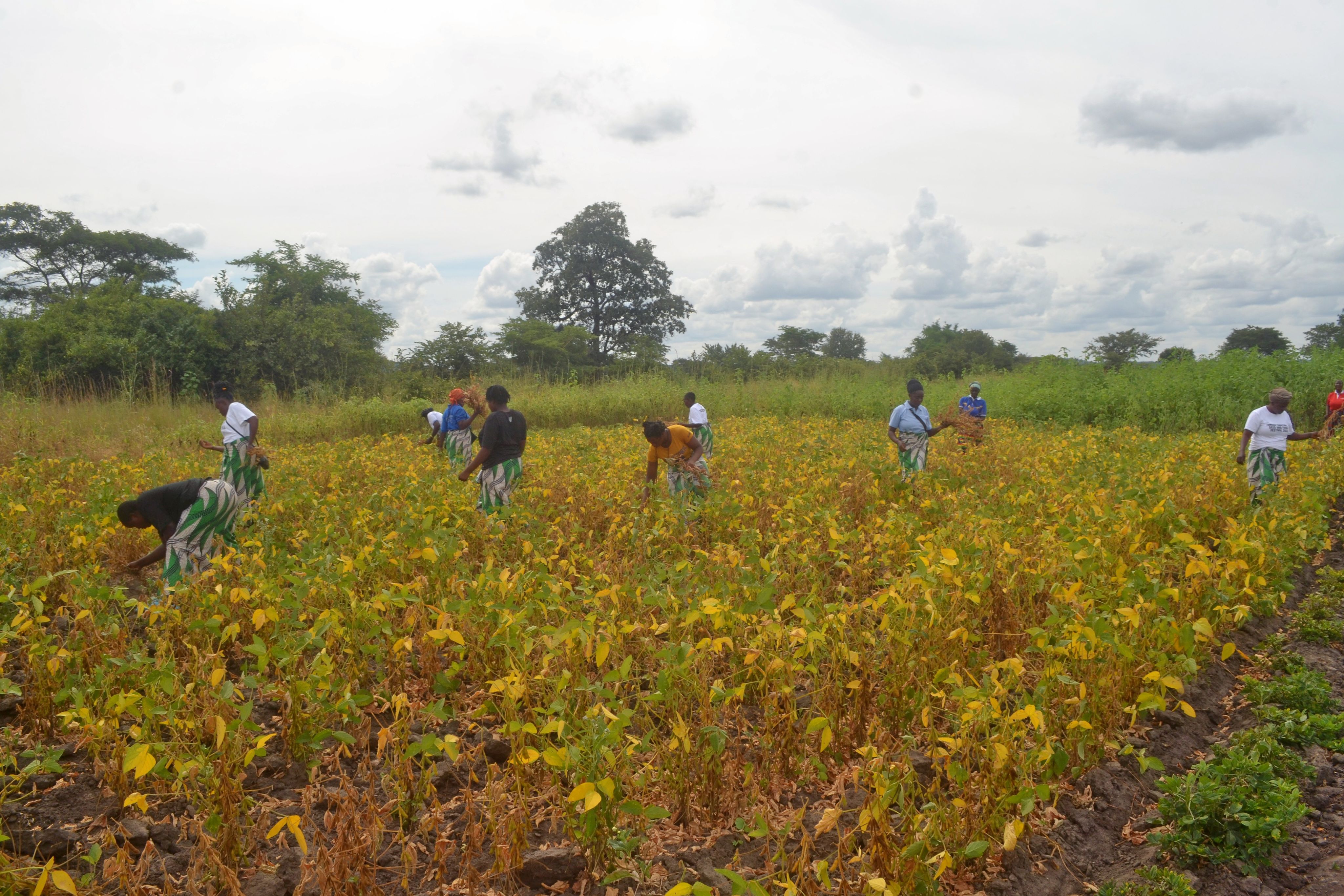
From Subsistence to Sustainability
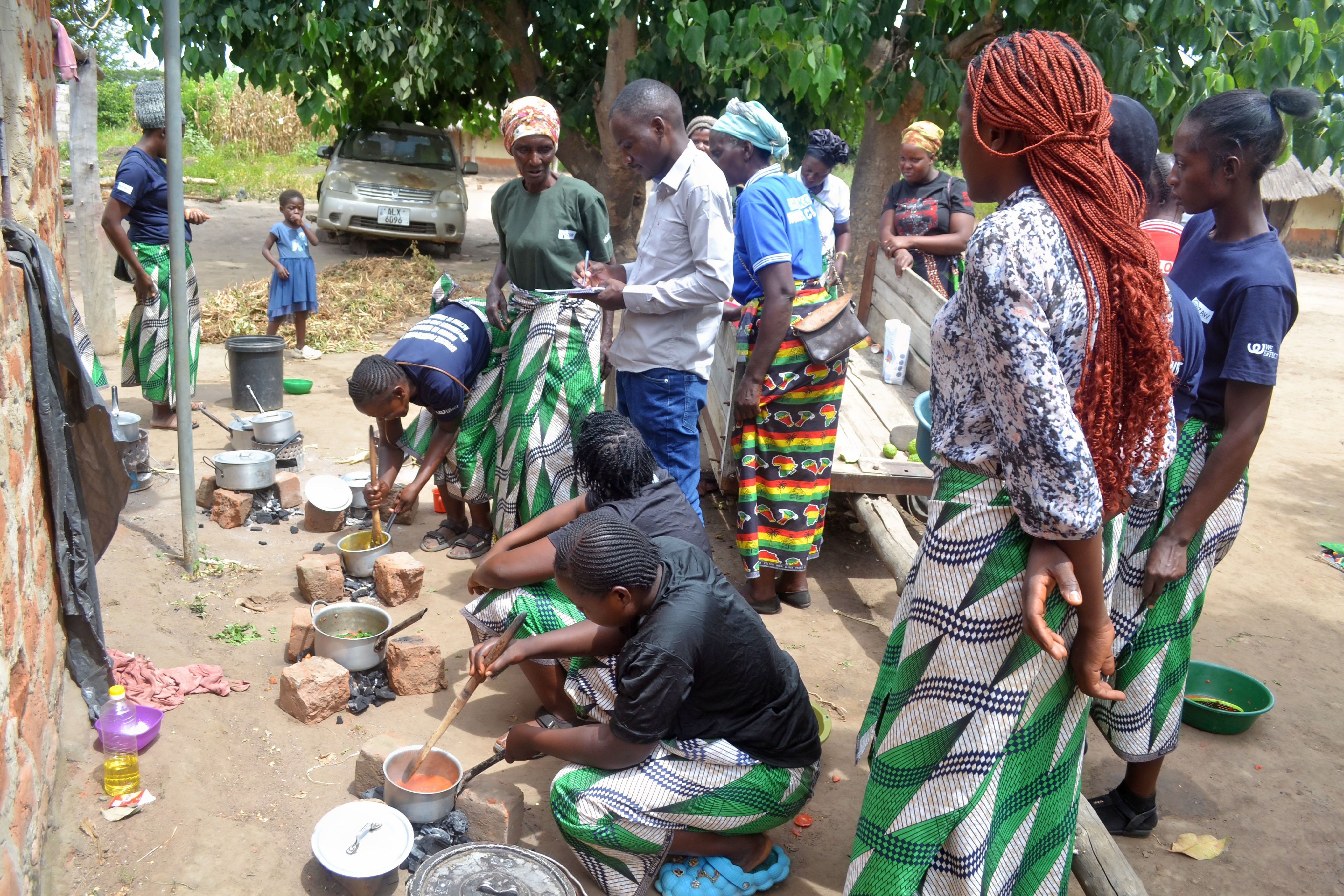
Sorgum harvesting.
Sorgum harvesting.
Kapyanga women stand beside their hammer mill.
Kapyanga women stand beside their hammer mill.
Agroecology farming training session.
Agroecology farming training session.
The impact of the Kapyanga Women Association extends far beyond agriculture. By integrating traditional practices with innovative solutions, the women are addressing multiple dimensions of sustainability—economic, social, and environmental. One of their most notable achievements is the production of eco-friendly charcoal briquettes made from maize cobs and cassava residues. This initiative reduces deforestation and forest degradation and provides a sustainable energy source for households, creating a new income stream for the women.
Another milestone is the acquisition of a community-owned hammer mill machine, purchased through collective savings from agroecological farming. This equipment allows the women to grind their organic crops into flour, adding value to their harvests and increasing household incomes. It marks a shift from subsistence to agro-enterprise, empowering the women to access markets and strengthen their community's food systems.
We feel a deep sense of peace and belonging when we're surrounded by nature. For us, it's a strong reminder that we must protect our Indigenous seeds, plants, and the environment.
That’s why we’re coming together with others who care to take action and stand up to the effects of climate change.
The association's efforts also extend to health and nutrition. Through workshops on traditional food processing, the women are reviving age-old techniques to reduce post-harvest losses and improve household nutrition. One such session involved preparing pumpkin jam, a delicacy made from native crops like pumpkins and groundnuts, using natural preservation methods. These activities celebrate culinary heritage while enhancing food security and economic opportunities.
Preserving Culture,
Protecting the Planet
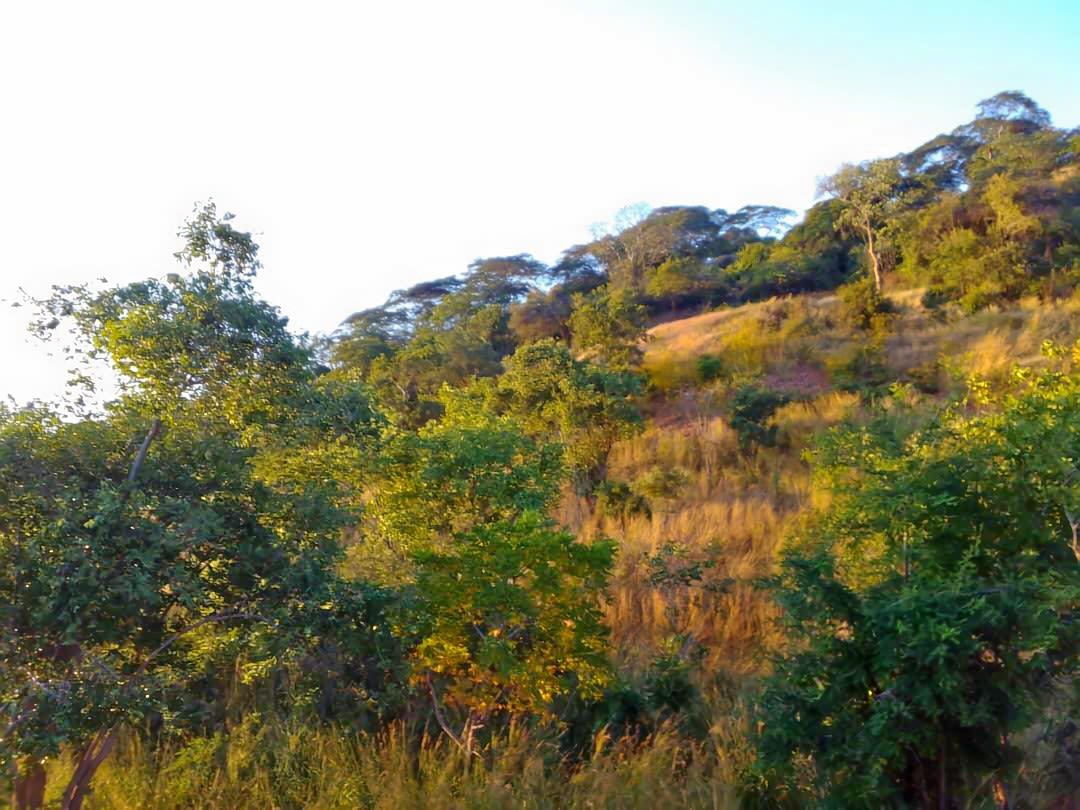
For the women of Kapyanga, agroecology is more than just a farming system, it is a way of life. Their practices are deeply rooted in cultural values that emphasise collective responsibility, respect for the land, and intergenerational learning. The spirit of "Ubuntu"—the belief in shared humanity—guides their work, fostering a sense of unity and purpose.
This commitment to cultural preservation is evident in every aspect of their work, from the hand-planting of indigenous seeds to the cultivation of medicinal plants like Moringa and Aloe Vera. These herbs, grown alongside food crops, are used to treat common ailments and reduce dependency on expensive pharmaceuticals. The association's herbal medicine initiative now supplies over 30 households, combining ecological conservation with health autonomy.
Their efforts have also revitalised local biodiversity, creating environments where birds, butterflies, and native trees thrive once again. By restoring ecosystems and protecting pollinator populations, the women are ensuring community resilience and long-term sustainability for their farms.
Sowing Seeds of Hope
The story of the Kapyanga Women Association is a testament to the power of women-led, community-driven solutions. Through their dedication to agroecology, traditional knowledge, and cultural heritage, the women are addressing the challenges of today, laying the foundation for a more just and sustainable future.
Their resilience is even more remarkable given the layers of oppression they navigate daily—inhumane labour demands in fields, households, and wage work; systemic barriers rooted in patriarchy, religion, and culturally imposed norms; and the plight of widows, child brides, and survivors of gender-based violence. These challenges are compounded by the loss of natural resources essential for survival, as well as issues of waste, pollution, and energy scarcity. Despite these obstacles, the women of Kapyanga have emerged as leaders in restoring forests, reviving indigenous seeds, and promoting food sovereignty. Their work is a profound declaration of resistance, resilience, and hope, demonstrating how grassroots leadership can transform communities and inspire global movements for justice and equity.
We believe this must go beyond policies and speeches. Environmental protection should be part of every child’s education, so that future generations grow up understanding how to live in harmony with the Earth.
We urge global leaders to act now not tomorrow to support grassroots action, listen to frontline voices, and invest in real solutions led by the communities most affected. The time for solidarity is now.
As Margaret stands in her field, watching the seeds she planted by hand take root, she knows she is part of something much larger than herself. Each seed represents a story, a legacy, and a promise to future generations, a promise that the land will continue to provide, the culture will continue to thrive, and the community will continue to grow.
The women of Kapyanga are cultivating crops, but more than that, they are cultivating change. Their work serves as a powerful reminder of the profound wisdom and resilience that lies in the hands of those who care for Mother Earth.
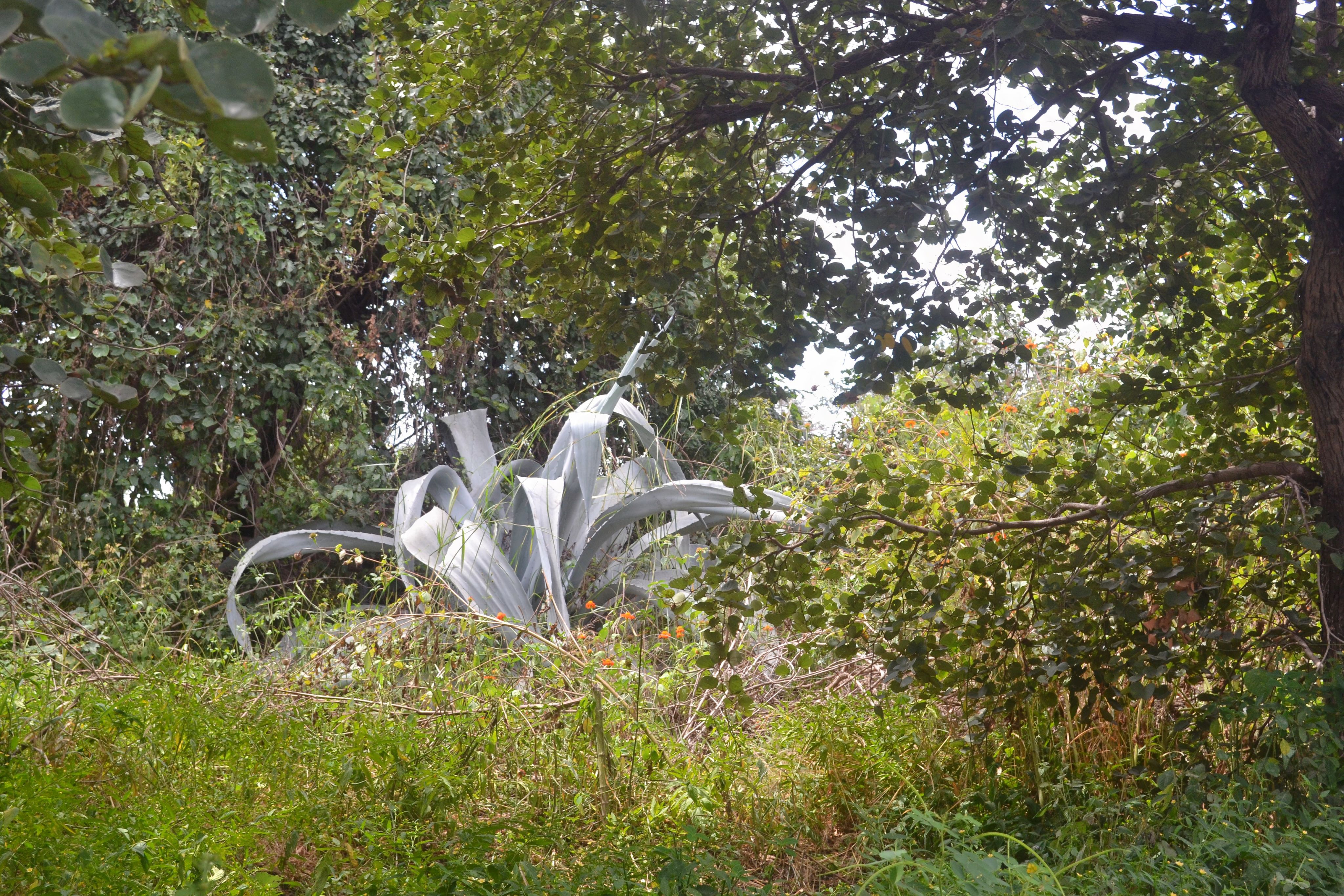
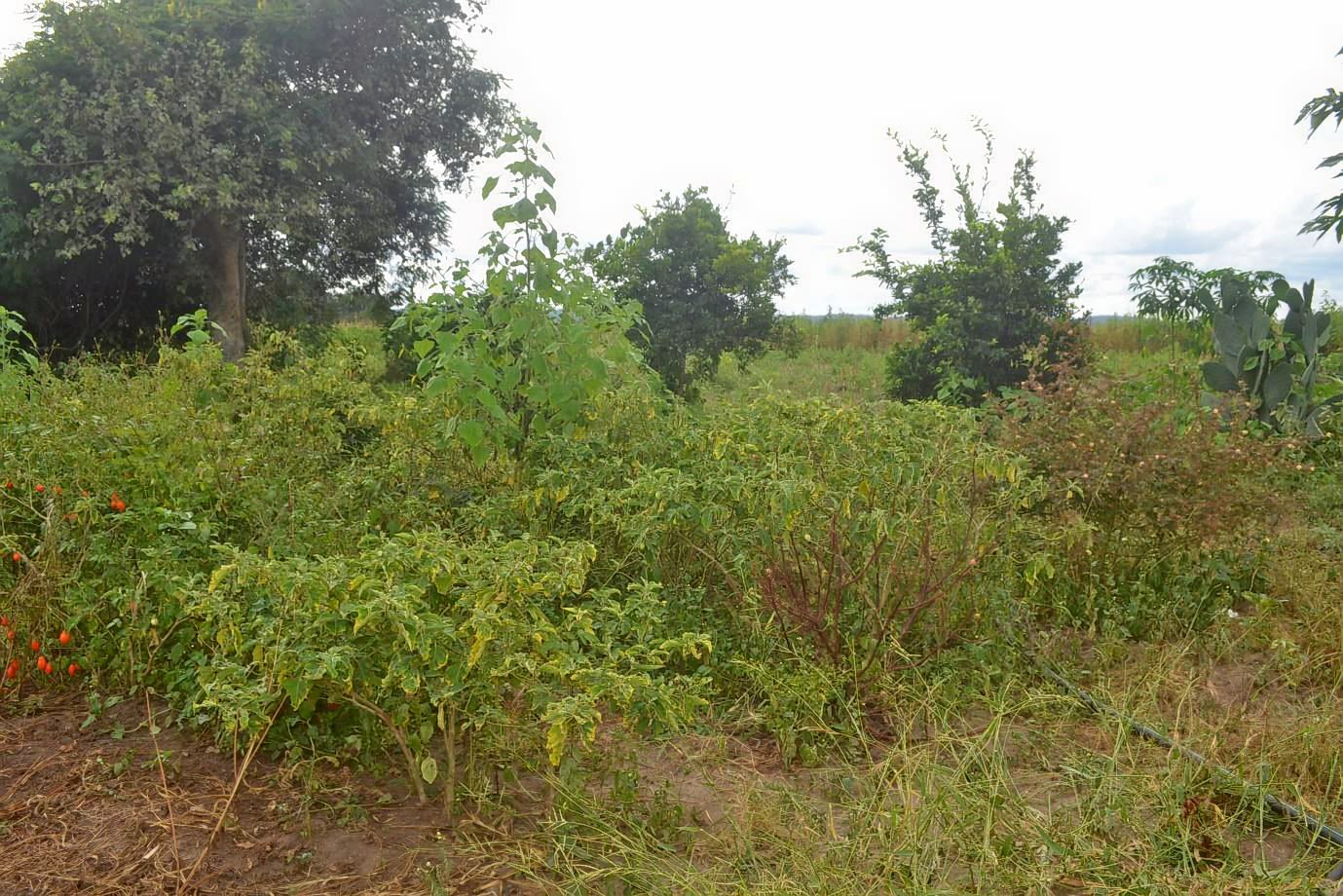
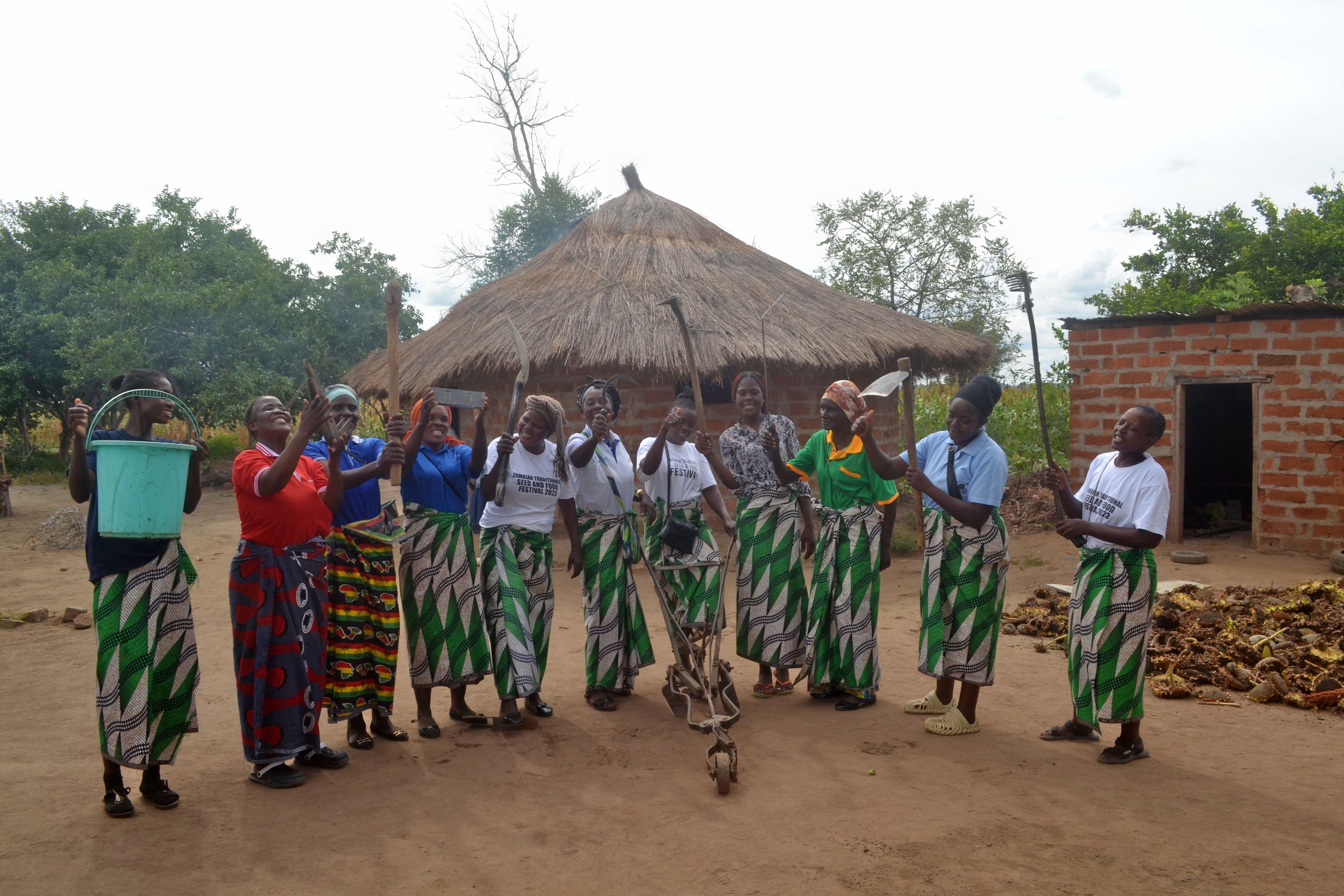
This photo essay was produced by the Global Forest Coalition, Zamsof, and the Kapangya Women Association, with thanks to Andrea Echeverri, Valentina Martínez Figuera, and Gershom Kabasho.
Photos: Kapyanga Women Association & Zamsof
Words: Zamsof/Ismail Wolff
Design: Ismail Wolff
Similar Stories
Agromandala
Agromandala is a Colombian agroecological project that grows, harvests, and markets fresh and processed foods 100% free of pesticides and cared for with all respect and love. At the core of Agromandala’s ethos lies the Community Supported Agriculture (CSA) model, a groundbreaking initiative born in August 2020 as a response to the COVID-19 pandemic. This innovative approach ensures a direct link between local organic farms and families invested in the well-being of their food sources. With over 150 varieties of edible plants, the project currently feeds around 80 families a week, of which 40 are members of the CSA.
The Seed Fairs of Heñói
In the heart of Asunción, Paraguay, two extraordinary fairs took place in 2023 against the backdrop of a fight for food sovereignty: the ‘Heñói Jey Native and Creole Seed Fair’ and the ‘Karú Soberano Fair’, which means ‘Sovereign Eating’ in the Guaraní language. They were organised under the guidance and leadership of the Heñói Seed Network. At these fairs, seeds emerge not just as agricultural treasures but as custodians of a profound legacy.
The Tree Box Project
The TreeBox Project is a unique initiative by Armenian Forests NGO that combines sustainable agriculture, environmental protection, and gender justice. It allows people to plant a forest in Armenia simply by ordering a box of healthy vegan food. Most importantly, this project centers gender justice, and is run by an all-women team of eight staff members and 25 farmers. Every element that goes into a TreeBox is procured directly from women farmers and entrepreneurs.

